Automotive
Huge Percentage of EV Owners Want to Go Back to Normal Cars, Study Finds
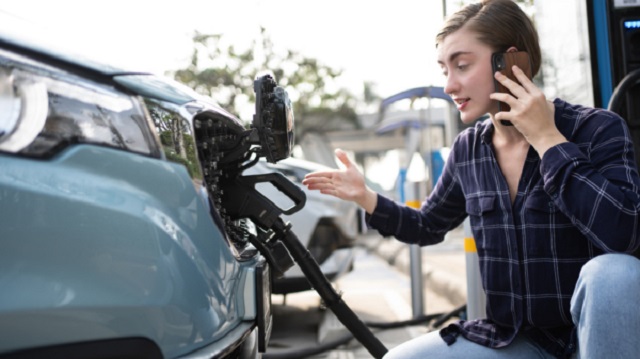
From Heartland Daily News
By Nick Pope
Nearly half of American electric vehicle owners want to buy an internal combustion engine model the next time they buy a car, according to a new study from McKinsey and Co., a leading consulting firm.
Approximately 46% of Americans who own an EV want to go back to a standard vehicle for their next purchase, citing issues like inadequate charging infrastructure and affordability, according to McKinsey’s study, which was obtained and reviewed by the Daily Caller News Foundation.
The study’s findings further suggest that the Biden administration’s push for electric vehicles is struggling to land with American consumers, after 46% of respondents indicated they are unlikely or very unlikely to purchase an EV in a June poll conducted by The Associated Press and the University of Chicago’s Energy Policy Institute.
Moreover, 58% of Americans are very likely to keep their current cars for longer, and 44% are likely to postpone a possible switch to electric vehicles, McKinsey’s study found. Consumers’ concerns about EV charging infrastructure are notable given the slow rollout of the Biden administration’s $7.5 billion public EV charger program, which so far has led to the construction of only a few public chargers in nearly three years.
The Biden administration has a stated goal of having EVs make up 50% of all new car sales by 2030. The Environmental Protection Agency finalized stringent regulations in March that will force manufacturers to ensure that up to 56% of their light-duty vehicles are EVs by 2032.
The EPA has also finalized strict emissions standards for medium- and light-duty vehicles, while the National Highway Traffic Safety Administration has locked in fuel economy standards that will further push manufacturers to produce more EVs.
The Biden administration is spending billions of dollars to subsidize production and purchase of electric vehicles, but manufacturers are still losing considerable amounts of cash on their EV product lines. EVs remained below a 10% share of all auto sales in the U.S. in 2023, according to Cox Automotive.
The White House did not respond immediately to a request for comment.
Nick Pope is a contributor to the Daily Caller News Foundation.
Automotive
New federal government should pull the plug on Canada’s EV revolution

From the Fraser Institute
During his victory speech Monday night, Prime Minister Mark Carney repeated one of his favourite campaign slogans and vowed to make Canada a “clean energy superpower.” So, Canadians can expect Ottawa to “invest” more taxpayer money in “clean energy” projects including electric vehicles (EVs), the revolutionary transportation technology that’s been ready to replace internal combustion since 1901 yet still requires government subsidies.
It’s a good time for a little historical review. In 2012 south of the border, the Obama administration poured massive subsidies into companies peddling green tech, only to see a vast swath go belly up including Solyndra, would-be maker of advanced solar panels, which failed so spectacularly CNN called the company the “poster child for well-meaning government policy gone bad.”
One might think that such a spectacular failure might have served as a cautionary tale for today’s politicians. But one would be wrong. Even as the EV transition slammed into stiff headwinds, the Trudeau government and Ontario’s Ford government poured $5 billion in subsidies into Honda to build an EV battery plant and manufacture EVs in Ontario. That “investment” came on top of a long list of other “investments” including $15 billion for Stellantis and LG Energy Solution; $13 billion for Volkswagen (or $16.3 billion, per the Parliamentary Budget Officer), a combined $4.24 billion (federal/Quebec split) to Northvolt, a Swedish battery maker, and a combined $644 million (federal/Quebec split) to Ford Motor Company to build a cathode manufacturing plant in Quebec.
How’s all that working out? Not great.
“Projects announced for Canada’s EV supply chain are in various states of operation, and many remain years away from production,” notes automotive/natural resource reporter Gabriel Friedman, writing in the Financial Post. “Of the four multibillion-dollar battery cell manufacturing plants announced for Canada, only one—a joint venture known as NextStar Energy Inc. between South Korea’s LG Energy Solution Ltd. and European automaker Stellantis NV—progressed into even the construction phase.”
In 2023, Volkswagen said it would invest $7 billion by 2030 to build a battery cell manufacturing complex in St. Thomas, Ontario. However, Friedman notes “construction of the VW plant is not scheduled to begin until this spring [2025] and initial cell production will not begin for years.” Or ever, if Donald Trump’s pledge to end U.S. government support for a broad EV transition comes to pass.
In the meantime, other elements of Canada’s “clean tech” future are also in doubt. In December 2024, Saint-Jérome, Que.-based Lion Electric Co., which had received $100 million in provincial and government support to assemble batteries in Canada for electric school buses and trucks, said it would file for bankruptcy in the United States and creditor protection in Canada. And Ford Motor Company last summer scrapped its planned EV assembly plant in Oakville, Ontario—after $640 million in federal and provincial support.
And of course, there’s Canada’s own poster-child-of-clean-tech-subsidy failure, Northvolt. According to the CBC, the Swedish battery manufacturer, with plans to build a $7 billion factory in Quebec, has declared bankruptcy in Sweden, though Northvolt claims that its North American operations are “solvent.” That’s cold comfort to some Quebec policymakers: “We’re going to be losing hundreds of millions of dollars in a bet that our government in Quebec made on a poorly negotiated investment,” said Parti Québécois MNA Pascal Paradis.
Elections often bring about change. If the Carney government wants to change course and avoid more clean-tech calamities, it should pull the plug on the EV revolution and avoid any more electro-boondoggles.
Automotive
Major automakers push congress to block California’s 2035 EV mandate
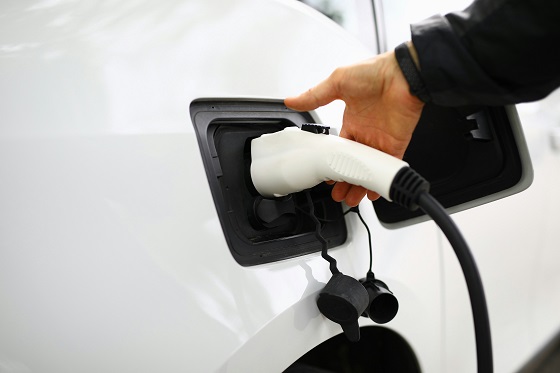
 MxM News
MxM News
Quick Hit:
Major automakers are urging Congress to intervene and halt California’s aggressive plan to eliminate gasoline-only vehicles by 2035. With the Biden-era EPA waiver empowering California and 11 other states to enforce the rule, automakers warn of immediate impacts on vehicle availability and consumer choice. The U.S. House is preparing for a critical vote to determine if California’s sweeping environmental mandates will stand.
Key Details:
-
Automakers argue California’s rules will raise prices and limit consumer choices, especially amid high tariffs on auto imports.
-
The House is set to vote this week on repealing the EPA waiver that greenlit California’s mandate.
-
California’s regulations would require 35% of 2026 model year vehicles to be zero-emission, a figure manufacturers say is unrealistic.
Diving Deeper:
The Alliance for Automotive Innovation, representing industry giants such as General Motors, Toyota, Volkswagen, and Hyundai, issued a letter Monday warning Congress about the looming consequences of California’s radical environmental regulations. The automakers stressed that unless Congress acts swiftly, vehicle shipments across the country could be disrupted within months, forcing car companies to artificially limit sales of traditional vehicles to meet electric vehicle quotas.
California’s Air Resources Board rules have already spread to 11 other states—including New York, Massachusetts, and Oregon—together representing roughly 40% of the entire U.S. auto market. Despite repeated concerns from manufacturers, California officials have doubled down, insisting that their measures are essential for meeting lofty greenhouse gas reduction targets and combating smog. However, even some states like Maryland have recognized the impracticality of California’s timeline, opting to delay compliance.
A major legal hurdle complicates the path forward. The Government Accountability Office ruled in March that the EPA waiver issued under former President Joe Biden cannot be revoked under the Congressional Review Act, which requires only a simple Senate majority. This creates uncertainty over whether Congress can truly roll back California’s authority without more complex legislative action.
The House is also gearing up to tackle other elements of California’s environmental regime, including blocking the state from imposing stricter pollution standards on commercial trucks and halting its low-nitrogen oxide emissions regulations for heavy-duty vehicles. These moves reflect growing concerns that California’s progressive regulatory overreach is threatening national commerce and consumer choice.
Under California’s current rules, the state demands that 35% of light-duty vehicles for the 2026 model year be zero-emission, scaling up rapidly to 68% by 2030. Industry experts widely agree that these targets are disconnected from reality, given the current slow pace of electric vehicle adoption among the broader American public, particularly in rural and lower-income areas.
California first unveiled its plan in 2020, aiming to make at least 80% of new cars electric and the remainder plug-in hybrids by 2035. Now, under President Donald Trump’s leadership, the U.S. Transportation Department is working to undo the aggressive fuel economy regulations imposed during former President Joe Biden’s term, offering a much-needed course correction for an auto industry burdened by regulatory overreach.
As Congress debates, the larger question remains: Will America allow one state’s left-wing environmental ideology to dictate terms for the entire country’s auto industry?
-

 Alberta1 day ago
Alberta1 day agoIt’s On! Alberta Challenging Liberals Unconstitutional and Destructive Net-Zero Legislation
-
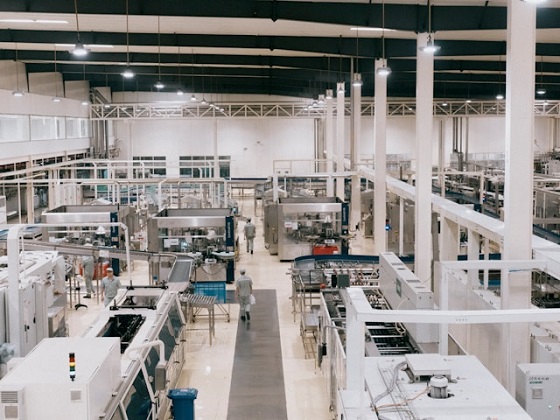
 Business2 days ago
Business2 days agoChina’s economy takes a hit as factories experience sharp decline in orders following Trump tariffs
-

 Automotive2 days ago
Automotive2 days agoNew federal government should pull the plug on Canada’s EV revolution
-
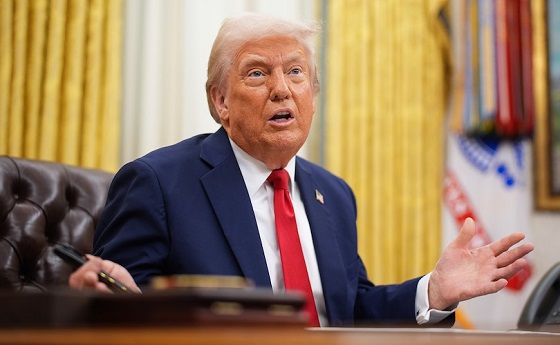
 Business2 days ago
Business2 days agoTrump’s bizarre 51st state comments and implied support for Carney were simply a ploy to blow up trilateral trade pact
-
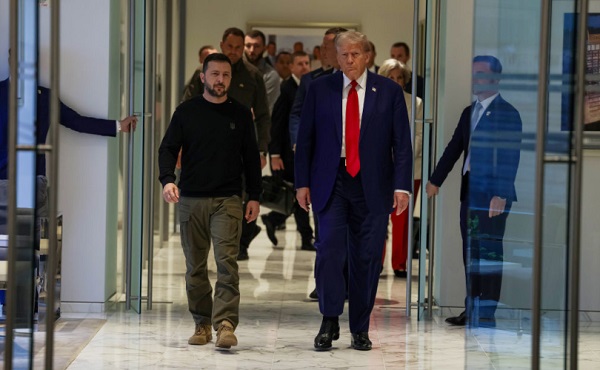
 Business2 days ago
Business2 days agoScott Bessent says U.S., Ukraine “ready to sign” rare earths deal
-

 International2 days ago
International2 days agoJavier Millei declassifies 1850+ files on Nazi leaders in Argentina
-

 Bjorn Lomborg2 days ago
Bjorn Lomborg2 days agoHow Canada Can Respond to Climate Change Smartly
-

 Alberta1 day ago
Alberta1 day agoAlberta’s future in Canada depends on Carney’s greatest fear: Trump or Climate Change



